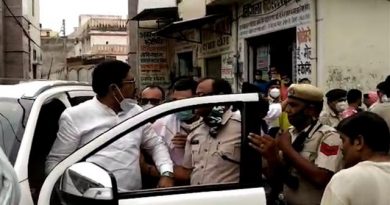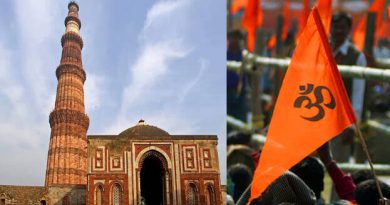| |
|---|
Debjit Mukherjee: “A”, “B”, “C”. The voice of four-year-old Nazma reading the letters scribbled on a wall fills the silence in a lane of Madanpur Khadar (Kanchankunj) where Rohingya refugees live in southeast Delhi.

“Maybe not knowing what’s happening around you helps you remain optimistic,” said Kabir, a young Rohingya leader who stays in the colony while looking at Nazma. “For those of us who know what’s been happening, difficult is an understatement” he added.
The Rohingyas sheltering in the colony went through a whirlwind of emotions amid the recent confusion over their supposed relocation to flats for economically weaker section (EWS) at Bakkarwala in West Delhi. The home ministry last week said no relocation was planned, responding after union minister Hardeep Singh Puri said on Twitter a “landmark decision” had been made. The Rohingyas said the rapid change in statements could make the bias against them worse.
“Life has anyway not been very kind to us. We were good without the attention. First, our hopes were dashed and now we are under the lens despite not doing anything,” said Kabir.
Since 2012, hundreds and thousands of Rohingyas fled Myanmar after the government there initiated a campaign of ‘ethnic cleansing’ against the community. More people from the community came to India last year after the Myanmar army launched a coup that unseated the country’s democratically elected government and triggered a civil war. Amidst all this, the Indian government has maintained that Rohingyas are not ‘refugees’ but illegal immigrants.
“Earlier, the media used to help make our voices reach people. Times have changed. Now, the media comes in with a certain perception and more often than not, mars our image,” said Qasim.
“Imagine coming to our homes, eating with us, and then threatening us,” said a Rohingya man (who didn’t want to be recognised). Many refugees were also apprehensive about talking to the media, fearing ‘biased reports’. “If 100 media people come, 90 are good. It’s those 10 people who make it worse. Is the media supposed to help the poor and downtrodden or make our case worse? ”Saleem, a shopkeeper in the colony, asked.
Kabir said they hardly find work and when do they find Indians have negative perceptions about Rohingyas. “We try and find seasonal work. I was recently fired from a gas company because I was deemed unnecessary. Neither Hindus nor Muslims trust us. They consider us threats who are taking up their space. But it is the other way round. If any of the people in the nearby houses ask us to move some day, we won’t have a choice,” he said.
The community is also resigned to a life where barely any amenity is available. Monsoon rains in Delhi inundated homes in the Madanpur Khadar colony. Incidents of snake bites are also common in the colony. “Something as basic as access to drinking water was given to us recently and that too via a hand pump. We still don’t have a toilet. We have to defecate in the open. Women and children suffer because of this. We hoped a new place would solve these issues,” said Kabir.
Some Rohingya said they had hoped the Aam Aadmi Party, which governs Delhi, would support them but recent statements by AAP leaders had disappointed them. Some months ago, the AAP government alleged that the Rohingyas are responsible for the violence in Jahangirpuri. AAP leader Atishi had tweeted, saying: “BJP has placed Bangladeshis and Rohingyas across the country to cause riots.”
AAP leader and Delhi Deputy CM Manish Sisodia recently said that the Union Home Ministry must investigate how word spread that Rohingyas in Delhi would be relocated in flats.
The Rohingyas sheltering in the colony went through a whirlwind of emotions amid the recent confusion flip-flop by the central government over their supposed relocation to flats for economically weaker section (EWS) at Bakkarwala in West Delhi. The home ministry last week said no relocation was planned, responding after union minister Hardeep Singh Puri said on Twitter a “landmark decision” had been made. The Rohingyas said the rapid change in statements could make the bias against them worse.




